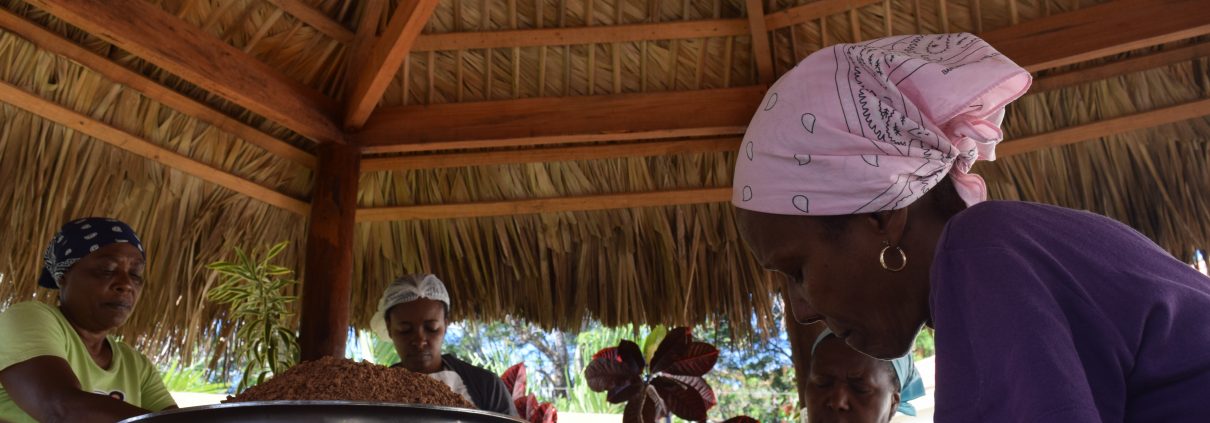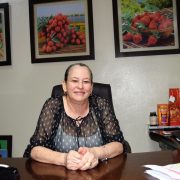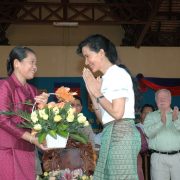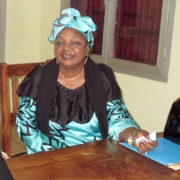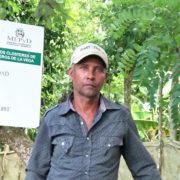Powered by Chocolate, Women Drive Community Change
By Julissa Almanzar
The smell of chocolate in the air is heady, even a bit distracting, as I sit down to talk with about 10 women who run Chocolala and Chocal, two factories in the northern Altamira region of Dominican Republic. They came together to tell the history of their businesses and how hard they have worked to build them, persevering despite significant personal and societal obstacles, and how their economic empowerment is in turn strengthening their community and empowering other women and girls to do the same.
The early times were hard. Nelfi Garcia, who works at Chocolala, remembers how she and the other women had to bring their children to work with them. “We would lay them under a cocoa tree and take turns taking care of them among ourselves.”
In addition to juggling entrepreneurship and child-rearing, this community of aspiring chocolate makers questioned themselves in every way. Were they capable of running a business’ Could this region produce fine chocolate’ Did they have the necessary skills’ Was it worth the effort’
Chocal and Chocolala were started with the support of international donors as a community development initiative for women and youth. At that time, it was not unusual for families to leave Altamira in search of better opportunities, so it was very important that any new enterprise supported through this initiative be based in the community and draw on readily available local resources. Cocoa had been—and continues to be—one of the most important crops in the area, and many local women had experience making sweets with chocolate at home.
But until then, none of them had considered that they might be able to make fine, quality chocolate themselves. Most of them worked at home at the time, caring for their children. Many had left school to raise a family. They didn’t know anything about running a chocolate business.
Ultimately, it was not a lack of education, skills, or experience that presented the biggest obstacle to starting a business. It was finding their voice in a space where they were not always heard, where the men did the talking, and where women depended exclusively on income generated by their husbands.
Still, they did need extensive training, and the training took place outside of town, which provoked even more pushback from the community, and especially from their husbands.
“I’m the only one who knows how difficult it was, and the difficulties I had with my husband,” said Noemi Crisostomo, who is vice president of Chocal. “But in the end I showed him that I was really learning and needed the courses to take the project forward.”
Today, Nelfi, Noemi, and the others refer to themselves as courageous and empowered women who are role models for their children and for the community.
In addition to improving their own quality of life, they are committed to helping as many others as they can. For example, through an employee rotation program, Chocal allows anyone who comes in search of a job to work there for two months. During that time, the employee generates an income, and the factory management is able to identify skilled people that can be fully integrated into the company. Employees range in age from 30 to 85. The older women are valued equally, and even if they aren’t able to handle the most physically demanding tasks, they take great satisfaction from their work.
The journey to a successful chocolate enterprise has been long, but the positive effects are far-reaching. For women, generating an income reaps benefits that go well beyond material things. Women’s economic empowerment changes mindsets. With more of a say in decision-making at home and household responsibilities that are increasingly shared by their husbands, the women of the Altamira chocolate factories have carved out a space where they have a voice’and are heard.
As we finish up our conversation, the atmosphere in the room is friendly, almost joyful. The self doubt they experienced when they were first getting started is gone and is replaced with a unanimous belief that they are achieving their goals on a personal, career, and community level. Yes, they fantasize about being able to buy nice things for themselves and their families, but they also dream of stronger factories that provide more opportunities for women and young people in Altamira. They imagine their children getting involved in the business and carrying on the dream that united all of them. And what I notice is that behind their dreams and fantasies is an underlying current of tangibility, driven by the knowledge that given what they have accomplished already, perhaps they can make these dreams come true, too.
_____________
Julissa Almanzar is value chain facilitator for cocoa and gender with the Dominican Republic Exporting Quality and Safety Program, a USDA-funded program that is increasing productivity and domestic and export sales of high-value fruit and vegetables: avocado, greenhouse and oriental vegetables, pineapple, and cocoa.

